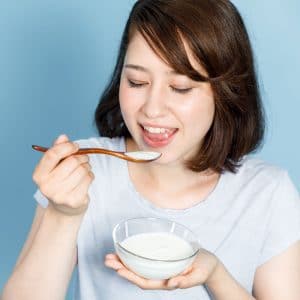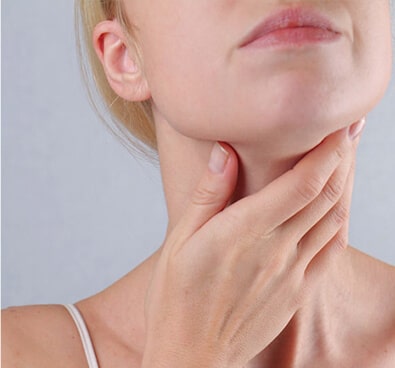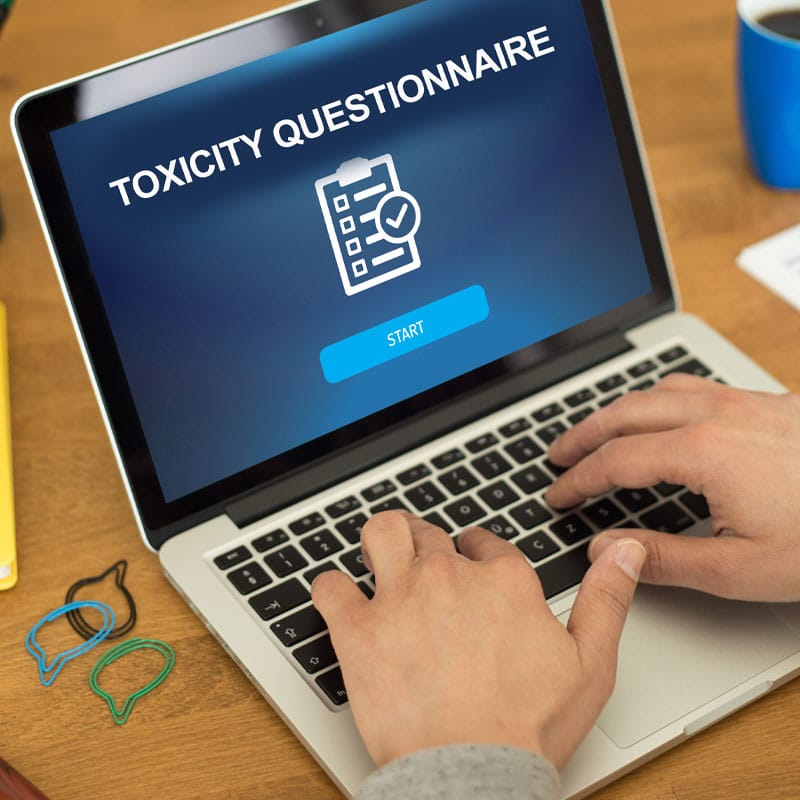Polycystic ovary syndrome, or PCOS, is a hormone disorder affecting women who are of reproductive age. It causes the body to produce too many male sex hormones, which causes a plethora of issues. PCOS has been associated with menstrual issues like infrequent periods or prolonged, heavy periods. Additionally, PCOS causes cysts to form in the ovaries. Many sufferers are surprised to learn that there are 4 types of PCOS. It is essential that women and their doctors know which type of PCOS they have as this can help ensure it is properly treated and the symptoms are minimized.
Polycystic ovary syndrome, PCOS, is one of the leading causes of infertility in women. The CDC reports that between 6 and 12 percent of reproductive aged females (approximately 5 million women) suffer from this common condition.
What Are the Four Types of PCOS?
There are four different types of polycystic ovary syndrome. Each one has a different cause and a different set of symptoms. Let’s take a look at each one and help you determine which type of PCOS you have and the best way to relieve your PCOS symptoms.

1. Adrenal PCOS
Adrenal PCOS occurs when you have an abnormal stress response. Typically, when you are under chronic stress, your DHEA-S (a type of androgen created by the adrenal glands) becomes elevated. Unlike testosterone, DHEA-S levels are typically not tested, which is why many women are improperly diagnosed with a different type of PCOS. A doctor who understands the different types of PCOS will run the necessary tests to determine the cause of your polycystic ovary syndrome. If it is determined that you are suffering from Adrenal PCOS, some recommendations to help heal the adrenal system and reverse PCOS include:
- Caffeine – Caffeine found in chocolate, coffee, soda, and tea can cause your ovaries to produce more male sex hormones than female sex hormones. Limiting the amount of caffeine you consume or completely eliminating caffeine from your diet can help your body heal and rebalance your hormones, which will relieve the symptoms of PCOS and even reverse it.
- Exercise – Exercise is good for the body; however, exercising too often or too hard can actually harm your body. High intensity exercises as well as excessive exercise can put too much stress on the adrenal glands and cause them to not be able to function properly. When this occurs, DHEA-S levels can become elevated. Getting 20 to 30 minutes of moderate exercise each day can help balance your hormones.
- Sleep – In order to support your recovery from PCOS, you will need to get at least 7 to 9 hours of sleep each night. If you are having trouble going to sleep or staying asleep, talk with your functional medicine doctor. They will be able to determine what is causing your insomnia and offer advice on how to get the sleep your body needs.
- Stress – Stress can be reduced by practicing stress relief activities like mind ful meditation, journaling, yoga, and deep breathing exercises. Practicing stress relief techniques helps to balance your hormones and strengthen your adrenal glands.

- Supplements – There are specific supplements that nourish the adrenal glands and help the body deal with stress and recover from the effects of stress on the body. Incorporating foods rich in vitamins and minerals along with taking a supplement can improve your health. The nutrients your adrenal glands needs are vitamin B5, vitamin C, magnesium, licorice, and Rhodiola.
2. Inflammatory PCOS
Did you know that chronic inflammation can cause your ovaries to produce excessive amounts of testosterone which can lead to PCOS? The symptoms of inflammatory PCOS include joint pain, headaches, skin issues, unexplained fatigue, and bowel problems. Individuals suffering from inflammatory PCOS may have high inflammatory markers when blood tests are run.
If you are suffering from inflammatory PCOS, there are several things you can do to ease your symptoms and reverse the inflammation that is responsible for your inflammatory PCOS, including:
- Gut Health – Leaky gut and other gut problems can lead to systemic inflammation that can impact your body’s ability to make hormones. Furthermore, excess inflammation can lead to hormonal imbalances. Repairing your gut by incorporating probiotic supplements and fermented foods in your diet increases the number of beneficial bacteria in the body to promote good gut health.
- Food Sensitivities – Food sensitivities can cause inflammation throughout your body. Oftentimes, it can be difficult to determine which foods are responsible for causing your inflammation. One of the best ways to solve this mystery is to follow an elimination diet. Soon, you will be able to tell which foods are causing your issues.
- Natural Relief – There are several natural anti-inflammatories that can help support your body when you are dealing with inflammatory PCOS. Adding vitamin C, vitamin E, and other antioxidants helps decrease inflammation and detoxify the body. In addition to this, incorporating omega 3 fatty acids and turmeric into your diet can help relieve many of the symptoms of PCOS.
3. Insulin Resistance PCOS
Approximately 70 percent of all PCOS cases are due to insulin resistance. Insulin resistance occurs when the body is unable to use insulin properly, resulting in high glucose levels. The body tries to regulate glucose levels by producing more insulin. Increased insulin levels can lead to higher production of male sex hormones.
Individuals suffering from insulin resistant PCOS may struggle with weight gain. They tend to hold their weight in their abdominal region. Other symptoms of insulin resistance polycystic ovary syndrome include brain fog, fatigue, and sugar cravings.
To help relieve insulin resistant PCOS, you will need to try to improve your insulin sensitivity. This can be accomplished with:

- Exercise – Getting 30 minutes of moderate exercise daily helps your body effectively utilize glucose and improves insulin sensitivity.
- Sleep – When you sleep, your body produces most of the hormones that you need for optimal health. Practice healthy sleep habits to help you get the recommended 7 to 9 hours of sleep.
- Stress Reduction – Chronic stress leads to a plethora of health issues, including insulin resistance, type 2 diabetes, obesity, and hormone imbalances. Practicing stress relief techniques like yoga, journaling, meditation, and tai chi can help reduce stress and the symptoms associated with chronic stress.
- Sugar Consumption – Excess sugar has been associated with increased inflammation, hormone dysregulation, and weight gain. Reducing sugar consumption can help reduce insulin resistance and may help reduce PCOS symptoms.
4. Post Pill PCOS
Post pill PCOS occurs when a woman stops taking their oral contraceptives. Specifically, oral contraceptives that use synthetic progestins like Yasmin, Yaz, and Ginet. When a woman stops taking this type of birth control pill, there is a natural surge in the production of androgens (male sex hormones). Typically, a woman will experience this type of PCOS about three to six months after stopping their birth control pills. There are certain things you can do to help with post pill polycystic ovarian syndrome, including:
- Patience – Healing takes time; therefore, you should be patient and remember this condition is temporary. When healthy lifestyle choices are made, the innate healing of your body will occur, your hormones will rebalance, and the symptoms of PCOS will ease.
- Sleep – Sleep disorders like obstructive sleep apnea and daytime sleepiness are common in women suffering from PCOS. Sleep disruptions as well as lack of sleep can prevent the body from making the hormones that it needs for optimal health.
- Stress Relief – Chronic stress causes the adrenal glands to pump out cortisol. When cortisol levels are high, the body will increase its production of androgens. Getting your stress levels under control isn’t easy; however, there are several things that can be done to lower your stress levels and balance your hormones. Stress relief techniques like cognitive behavioral therapy, mindful meditation, and group therapy can help reduce cortisol levels and rebalance your hormones.
- Supplements – There are several supplements and herbs that can support ovulation and help rebalance your sex hormones. Talk with your practitioner to see if incorporating any of the following supplements are helpful: magnesium, zinc, vitamin B6, and vitamin C. In addition to this, peony and chaste tree may help decrease male sex hormones.
PCOS is a complex hormone disorder with several different causes. If you are experiencing the symptoms of PCOS and are ready to find the root cause and begin working toward reversing PCOS, our functional medicine doctors can help rebalance your hormones.
















